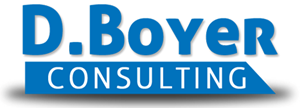Business is mostly conducted via email or phone communications.
Office hours 10:00 a.m. to 6:00 p.m, Mon. - Thurs., and 10:00 a.m. to 2:00 p.m. on Fridays.
SEND EMAIL INQUIRIES DIRECTLY TO:
Dawn.Boyer@me.com
Business is mostly conducted via email or phone communications.
Office hours 10:00 a.m. to 6:00 p.m, Mon. - Thurs., and 10:00 a.m. to 2:00 p.m. on Fridays.
SEND EMAIL INQUIRIES DIRECTLY TO:
Dawn.Boyer@me.com
Business is mostly conducted via email or phone communications.
Office hours 10:00 a.m. to 6:00 p.m, Mon. - Thurs., and 10:00 a.m. to 2:00 p.m. on Fridays.
SEND EMAIL INQUIRIES DIRECTLY TO:
Dawn.Boyer@me.com
Beware: Your job applicants may litigate
November 15th, 2011 by Dawn Boyer
I have three daughters who were very active in job searching during their high school years who combed the local area for a job. They inquired at small stores, franchises, and multiple restaurants – dozens of businesses. As a concerned mom, I coached them as they struggled through the forms. Some online applications asked for personal information that had nothing to do with the job tasks. I bit my lip when they eagerly applied with their personal information.
Many applications were generic forms, which asked for social security, driver’s license numbers, and birthdates. As a HR manager for twenty years, I was surprised at this continuing illegal practice. Business owners are still naive about legal practices for human resources recruiting and hiring. I was shocked at how many employees have access to job applications – from the hostess at the front desk to the store manager who finally gets the form. I also heard about teens recognizing a peer (they don’t like) applying for a job and how fast the job application ‘mysteriously’ disappears.
Bulletproofing a business for the hiring process is not that costly or time consuming. Business owners must educate themselves on basic employment law to protect their interests and the business’ assets.
The best application I ever encountered was the size of a postcard asking for my address, phone number, and the date I wanted to start work. That was thirty years ago. Applications have grown to four to six pages to protect the legal rights of the business.
Businesses increasing their workforce should have a written hiring policy that is legally compliant for hiring practices and employment law. Poorly written applications can subject the business to costly and time-consuming allegations and charges, litigation, and possible fines. If a job applicant is savvy enough to look for and find illegal practice(s), businesses can expect charges of unfair labor and employment practices.
A simple and smart hiring policy, partnered with a strong and legally written job application, can go far in protecting the business. A well-written application can also serve in pre-qualifying applicants to assist the company to recruit better. Businesses can also protect themselves by:
- Using HR (or counsel) approved versus over-the-counter job applications. Office stores can provide blank job applications, but these generic forms have boxes asking for social security numbers and birthdates. It is illegal to ask for this information before an offer of employment is made and the I-9 is to be submitted. Some forms ask for high school or college graduation dates – also illegal – because it can indicate the age of applicant and potentially be used to discriminate.
- Keeping applications confidential. Businesses need a policy where job applications are delivered directly to the hiring manager or dropped into a locked box if an online recruiting system is unavailable. Private information is an identity thief’s dream, a vindictive teen’s chance, or a stalker’s mother lode. If a job applicant only submitted one application to one business, that information theft could be tracked back to the responsible (and negligent) business.
- Having an HR professional design the application and write the hiring policy. HR professionals are trained in employment law and know what can legally be asked on applications. Can’t afford to hire HR staff? Spend a few bucks for a few hours with an HR consultant. Many can also recommend low-cost, online recruiting systems enabling automated processing of employment applications, allowing more time for interviewing and selection.
- Ensuring application forms protect the company legally. Legal declarations on applications note what is expected from the applicant, what the company will do to protect the information on the form, and how long the form will be kept.
- Using job applications as pre-qualifiers. Save time and ensure equal fairness for consideration based on specific skills, knowledge, or experience asked of all applicants.
Expanding a business with new employees is exciting. It should be a smooth process with legal applications, which assists in making good choices for staffing. If a small business doesn’t have a trained HR professional, don’t rely on self-help books or guesswork. Hire a trained HR consultant for guidance, design, and employment compliance. This protects the applicants from unethical hiring practices and provides assurance the business is fair and equitable as an honest and ethical employer.
Copyright, 2005, Dawn D. Boyer
Readers Comments
Beware: Your job applicants may litigate
November 15th, 2011 by Dawn Boyer
I have three daughters who were very active in job searching during their high school years who combed the local area for a job. They inquired at small stores, franchises, and multiple restaurants – dozens of businesses. As a concerned mom, I coached them as they struggled through the forms. Some online applications asked for personal information that had nothing to do with the job tasks. I bit my lip when they eagerly applied with their personal information.
Many applications were generic forms, which asked for social security, driver’s license numbers, and birthdates. As a HR manager for twenty years, I was surprised at this continuing illegal practice. Business owners are still naive about legal practices for human resources recruiting and hiring. I was shocked at how many employees have access to job applications – from the hostess at the front desk to the store manager who finally gets the form. I also heard about teens recognizing a peer (they don’t like) applying for a job and how fast the job application ‘mysteriously’ disappears.
Bulletproofing a business for the hiring process is not that costly or time consuming. Business owners must educate themselves on basic employment law to protect their interests and the business’ assets.
The best application I ever encountered was the size of a postcard asking for my address, phone number, and the date I wanted to start work. That was thirty years ago. Applications have grown to four to six pages to protect the legal rights of the business.
Businesses increasing their workforce should have a written hiring policy that is legally compliant for hiring practices and employment law. Poorly written applications can subject the business to costly and time-consuming allegations and charges, litigation, and possible fines. If a job applicant is savvy enough to look for and find illegal practice(s), businesses can expect charges of unfair labor and employment practices.
A simple and smart hiring policy, partnered with a strong and legally written job application, can go far in protecting the business. A well-written application can also serve in pre-qualifying applicants to assist the company to recruit better. Businesses can also protect themselves by:
- Using HR (or counsel) approved versus over-the-counter job applications. Office stores can provide blank job applications, but these generic forms have boxes asking for social security numbers and birthdates. It is illegal to ask for this information before an offer of employment is made and the I-9 is to be submitted. Some forms ask for high school or college graduation dates – also illegal – because it can indicate the age of applicant and potentially be used to discriminate.
- Keeping applications confidential. Businesses need a policy where job applications are delivered directly to the hiring manager or dropped into a locked box if an online recruiting system is unavailable. Private information is an identity thief’s dream, a vindictive teen’s chance, or a stalker’s mother lode. If a job applicant only submitted one application to one business, that information theft could be tracked back to the responsible (and negligent) business.
- Having an HR professional design the application and write the hiring policy. HR professionals are trained in employment law and know what can legally be asked on applications. Can’t afford to hire HR staff? Spend a few bucks for a few hours with an HR consultant. Many can also recommend low-cost, online recruiting systems enabling automated processing of employment applications, allowing more time for interviewing and selection.
- Ensuring application forms protect the company legally. Legal declarations on applications note what is expected from the applicant, what the company will do to protect the information on the form, and how long the form will be kept.
- Using job applications as pre-qualifiers. Save time and ensure equal fairness for consideration based on specific skills, knowledge, or experience asked of all applicants.
Expanding a business with new employees is exciting. It should be a smooth process with legal applications, which assists in making good choices for staffing. If a small business doesn’t have a trained HR professional, don’t rely on self-help books or guesswork. Hire a trained HR consultant for guidance, design, and employment compliance. This protects the applicants from unethical hiring practices and provides assurance the business is fair and equitable as an honest and ethical employer.
Copyright, 2005, Dawn D. Boyer














